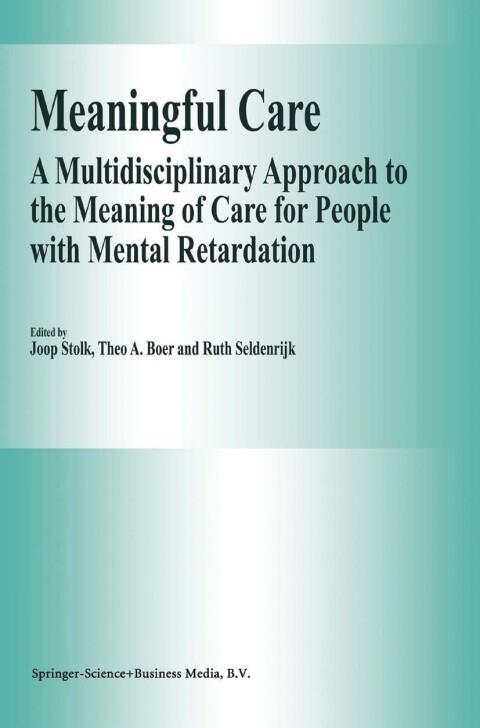
Meaningful Care: A Multidisciplinary Approach to the Meaning of Care for People with Mental Retardation
由
J. Stolk; Theo A. Boer; R. Seldenrijk
还没有评分
Religion & Spirituality
Philosophy
Health & Wellness
格式
Kindle
页数
214
语言
荷兰语,佛兰芒语
已发布
Jan 1, 2013
出版商
Springer
版本
2000
ISBN-10
940159516X
ISBN-13
9789401595162
描述
In an evolving landscape of mental health, the journey towards understanding and enhancing care for individuals with mental retardation takes center stage. The authors delve into a multifaceted exploration of what it truly means to offer meaningful care. They emphasize the importance of a collaborative approach that integrates insights across various disciplines, fostering a richer understanding of the unique needs of these individuals.
Through engaging narratives and empirical evidence, the work provides a thoughtful examination of the lived experiences of both caregivers and those receiving care. It highlights the emotional and psychological dimensions of care, advocating for a perspective that transcends mere functionality to encompass compassion and respect. The discussions encourage caregivers to reflect on their practices and consider how their actions resonate on a deeper level with those they support.
The authors guide readers toward a re-envisioned perspective on care, one that acknowledges the individuality and dignity of each person. This focus on understanding not only benefits caregivers but also enhances the quality of life for individuals with mental retardation. Ultimately, this compelling exploration serves as a rallying cry for integrating empathy into the fabric of care practices. By fostering relationships built on trust and respect, the goal of meaningful care can be realized.
Through engaging narratives and empirical evidence, the work provides a thoughtful examination of the lived experiences of both caregivers and those receiving care. It highlights the emotional and psychological dimensions of care, advocating for a perspective that transcends mere functionality to encompass compassion and respect. The discussions encourage caregivers to reflect on their practices and consider how their actions resonate on a deeper level with those they support.
The authors guide readers toward a re-envisioned perspective on care, one that acknowledges the individuality and dignity of each person. This focus on understanding not only benefits caregivers but also enhances the quality of life for individuals with mental retardation. Ultimately, this compelling exploration serves as a rallying cry for integrating empathy into the fabric of care practices. By fostering relationships built on trust and respect, the goal of meaningful care can be realized.





![[Ethical Principles and Economic Transformation - A Buddhist Approach (Issues in Business Ethics)] [Author: x] [May, 2011]](https://images.bookpine.com/bd815e9c-ead9-4e64-bfb5-aea659b2460b.jpg)













